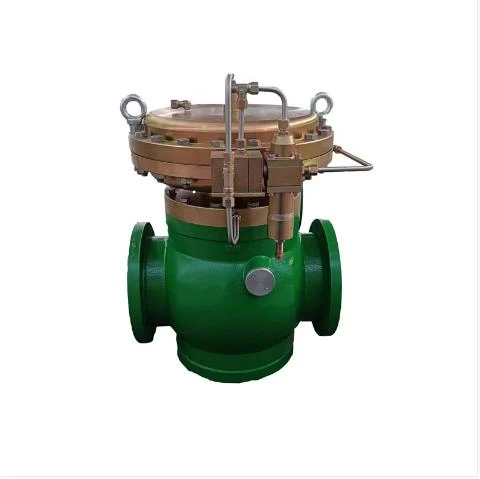
Oct . 02, 2024 00:11
Back to list
Natural Gas Filter Solutions for Enhanced Efficiency and Performance Optimization
The Role of Natural Gas Filters in Enhancing Energy Efficiency
Natural gas has become a pivotal source of energy for many countries around the globe. Its clean-burning properties, combined with a lower carbon footprint compared to other fossil fuels, have led to increased reliance on this resource. However, to ensure the efficient use of natural gas, it is essential to implement various technologies, one of which includes natural gas filters. These filters play a critical role in maintaining the quality of natural gas and ensuring that it meets the necessary safety and performance standards.
Natural gas is composed primarily of methane, but it often contains other impurities such as water, hydrogen sulfide, carbon dioxide, and solid particles that can affect its combustion efficiency. The presence of these impurities can lead to contamination of equipment, loss of energy efficiency, and even hazardous situations if left unaddressed. This is where natural gas filters come into play.
.
Coalescing filters are particularly effective in removing liquid contaminants, such as water and hydrocarbon condensates. By allowing oil and water droplets to coalesce, or merge, they form larger droplets that can then be removed from the gas stream. This is crucial in preventing corrosion and damage to pipelines and combustion systems.
مرشح الغاز الطبيعي

Particulate filters, on the other hand, target solid impurities, such as dust and rust particles. These filters maintain the integrity of the natural gas supply and prevent blockages in the fuel delivery system, ensuring that appliances function correctly and efficiently. The regular maintenance and replacement of particulate filters are essential to sustain their effectiveness.
Activated carbon filters are essential for removing unwanted odorants and trace contaminants. These filters utilize the high surface area of activated carbon to adsorb harmful gases and impurities, thereby enhancing the overall quality of natural gas. This is particularly important in urban settings where natural gas is not only used for heating but also in manufacturing processes.
The efficiency of natural gas filters directly impacts energy consumption and environmental emissions. By ensuring that only clean natural gas is burned, these filters help reduce greenhouse gas emissions and optimize energy use. Consequently, industries that incorporate natural gas filters often notice a decrease in operating costs due to improved energy efficiency and lower maintenance expenses.
Moreover, the adoption of advanced filtration technologies also aligns with contemporary moves towards sustainability. With governments and regulatory bodies increasingly emphasizing the reduction of carbon footprints, implementing natural gas filters aids in complying with environmental regulations and supports the transition to cleaner energy systems.
In conclusion, natural gas filters play an indispensable role in the natural gas supply chain, enhancing the quality of gas for various applications. By effectively removing impurities, these filters not only ensure operational efficiency but also contribute to significant environmental benefits. As the world continues to seek cleaner and more efficient energy solutions, the importance of natural gas filters cannot be overstated. Investing in advanced filtration technologies will be vital for industries aiming to optimize their processes while adhering to sustainability goals in the coming decades.
Latest news
-
Safety Valve Spring-Loaded Design Overpressure ProtectionNewsJul.25,2025
-
Precision Voltage Regulator AC5 Accuracy Grade PerformanceNewsJul.25,2025
-
Natural Gas Pressure Regulating Skid Industrial Pipeline ApplicationsNewsJul.25,2025
-
Natural Gas Filter Stainless Steel Mesh Element DesignNewsJul.25,2025
-
Gas Pressure Regulator Valve Direct-Acting Spring-Loaded DesignNewsJul.25,2025
-
Decompression Equipment Multi-Stage Heat Exchange System DesignNewsJul.25,2025

